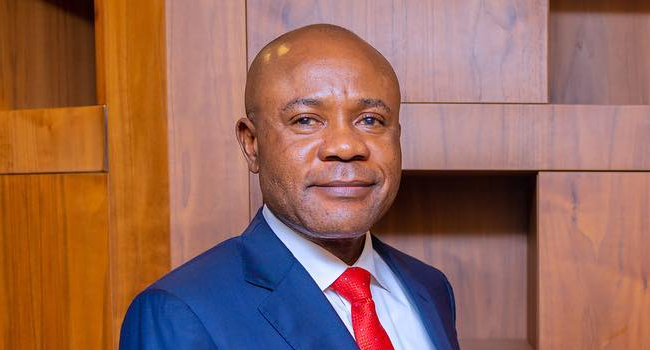Killings: Gov Mbah transmits bill to regulate native doctors, ban ritual practices in Enugu
...violators risk 20-year jail term
Governor Peter Mbah of Enugu state has transmitted a bill seeking to regulate spiritual practices and outlaw ritual killings, bulletproof charms and illegal forest encampments to the state house of assembly.
The executive bill titled ‘Maintenance of Internal Security, Vigilance and Order’ proposes strict regulations for spiritual practitioners including native doctors and herbalists.
The bill seeks to criminalise rituals for wealth (popularly known as ‘okite’) and charms used for criminal invincibility (known as ‘odeshi’).
The executive bill also prohibits the illegal occupation of forests or private property for criminal activities.
Section 3 (1) of the bill states: “Every person, who engages in the practice or rendering of spiritual services within the state, whether as a native doctor, herbalist, spiritualist, chief priest, diviner, seer, or by any other traditional or spiritual title or designation, shall be registered with the ministry, department or agency (MDA) of the state as may be designated by the Governor for that purpose.”
Practising without registration will attract a fine of between N1 million and N5 million, or imprisonment for up to two years, or both.
Section 15 criminalises the use of rituals for wealth or criminal protection.
“Any person who, under the guise of spiritual or traditional practice (including but not limited to the practices commonly referred to as ‘okite’, ‘ezenwanyi’, or any other mystical or ritual name/form) administers or causes to be administered any charm, substance, or object on or for another person, for the purpose of: (a) invincibility and other forms of protection to facilitate the commission of any criminal offence; or (b) acquiring wealth or benefits by supernatural means outside any lawful means of livelihood, commits an offence and is liable on conviction to imprisonment for a term of six (6) years or to a fine of not less than five million naira (₦5,000,000), or both,” the bill reads.
“Any person, who falsely claims to possess supernatural powers or misleads the public into believing so, for the purpose of gaining reward, or influence (whether financially or otherwise) commits an offence and shall be liable on conviction to imprisonment for a term of three (3) years or to a fine of not less than three million naira (N3,000,000), or both.”
The bill places the burden of proof on those who claim supernatural abilities to demonstrate such powers during investigation.
Section 16 stipulates a six-year jail term or a N5 million fine, or both, for any person who uses a religious facility to commit or facilitate crime. Such facilities will also be sealed pending investigation.
Section 17 prescribes 20 years imprisonment without the option of a fine for anyone involved in rituals using human body parts.
Section 13 provides that anyone found in a bush or forest without lawful reason, and under suspicious circumstances, should be handed over to security agencies for investigation.
The bill also criminalises the use of buildings or land, especially in forests, for banditry, kidnapping, or collecting ransom. Violators are liable to 20 years imprisonment without the option of a fine.
The bill also stated that anyone who permits non-security agents to camp or settle on their land for non-farming purposes also risks two years’ imprisonment without an option of a fine.
Land owners who fail to report suspicious activity on their property face the same penalty.
The bill further provides that any land or property used for kidnapping, robbery, or banditry shall be forfeited to the Enugu state government.
Proceeds of such crimes — if not claimed by verifiable owners — will also be forfeited to the government.
Private security outfits are mandated to register with the government, submitting the identities of all armed personnel in their employ.
Presidents-general of town unions must also submit monthly security reports to their local government chairmen or any designated authority.
Landlords, hotel operators, and estate managers must collect and transmit valid identification, occupation, and contact details of prospective tenants and guests to the government.
Hotels and lodging facilities must install surveillance cameras and submit footage to security agencies when required.
Landlords who violate these provisions face fines of at least N500,000, while hotel owners may be fined up to N1 million.



